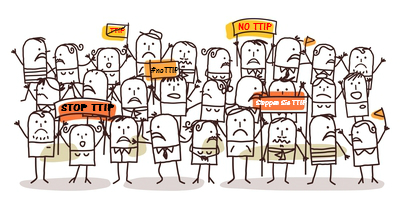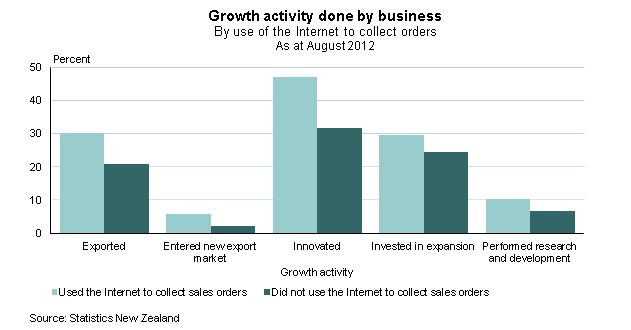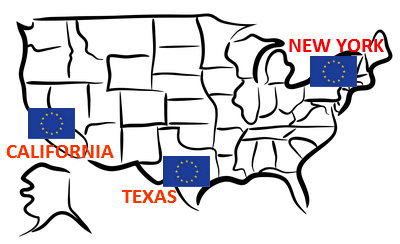Want to grow your export and business in Europe? John Worthington, Managing Director of ibt partners presents at the Massachusetts Export Expo on how to develop effective European sales and marketing strategies using the internet.
International Business and Technology Blog
International web marketing: IBT Online presents at Massachusetts Export Expo 2014
Posted by Tereza Roubalikova on Mon, Dec 08, 2014
Every year, the 28 countries of the European Union (EU) suck in 100’s of billions of dollars worth of goods and services from the USA. In 2014, that figure is expected to exceed $0.5 Tn. The EU and the USA remain each other’s largest import/export partners (>$1 Tn annual flow). In this article we are going to drill down into the import of goods (so excluding services, which will be dealt with next month) by the EU from the USA. Firstly, we will ask what are these goods that are so consistently imported (making the EU the #1 market, after Canada, for US exported goods) and secondly which EU countries are doing all that heavy importing…
Tags: All posts
European social media strategies – You don’t need to create a new business profile in each country. An example with Facebook
Posted by Tereza Roubalikova on Mon, Nov 24, 2014
An active presence on social media is not just a marketing fad, it’s a crucial part of any business’ marketing strategy - the new way how to build your brand and engage with your customers or other target audiences. Many US companies understand the importance of social media as well as importance of country specific websites for each of their key markets. But they are still often unsure about how to manage social media across a number of multilingual markets. Which social media networks are important for my business? Do I need to create a new business profile in each country? If you’re asking these questions – don’t worry! You’re not the only one and we have answers to that.
Living in the USA, browsing with Google.com, your search results are invariably in English. If you search for a product then Google tells you where to find it locally. The internet is mostly in English, right?
Tags: All posts, Global Markets
Hot off the press, yes it is official. Eurozone (18 countries) GDP grew by a whole 0.2% in Q3.2014, exceeding expectations by a whopping 0.1% (real optimism there). As you can imagine with that kind of good news we in Europe are all off on a well-earned buying spree, celebrating and adding to our Q4.2014 numbers.
Tags: All posts
On October the 3rd, the 7th week-long round of TTIP negotiations closed with the wonderfully named EU Chief TTIP Negotiator, Ignacio Garcia Bercero, stating somewhat blandly (Can we expect more? Yes we can): “We have again had a week of productive discussions. Negotiations are now moving smoothly into the textual phase, where discussions are based on specific textual proposals”.
Tags: All posts
We all know Bruce Springsteen’s view on getting paid. Clearly, the European Payments Council (EPC), the decision-making and coordination body of the European banking industry in relation to payments, charged with developing the Single Euro Payments Area (SEPA), had the Boss in mind, when scoping out this innovative program.
Tags: All posts, Global Markets, Global Ecommerce
Companies collecting sales orders online have 30% higher exports
Posted by Michael Hawksley on Tue, Oct 21, 2014
It is widely agreed that the use of technology and business growth are closely linked, and more so when companies look to develop export markets. A report from New Zealand’s Business Operations Survey concluded that export rates are significantly higher for those companies with online ordering systems to collect sales. This does not relate only to large companies. Small, medium, large – businesses of all sizes that use online technologies have higher rates of exporting than those that do not.
Tags: All posts, Global Ecommerce
Every year, the European Union's (EU) 28 countries import 100’s of billions of dollars worth of goods and services from the USA. This year, the figure is expected to be >$0.5 Tn. In 2013, the USA and the EU remained, and have always been, each other’s largest export/import (>$1 Tn annual flow) and investor partners (>$300 Bn annual flow). This is not a new situation, the transatlantic relationship is key for US exporters, and is not one that is likely to change in the near future.
Tags: All posts, Global Markets
More frequently than ever, end customers as well as businesses start their product searches and procurement processes online. Search engines have become today’s marketplace, where customer demand meets supply. If you want to stand out amongst your competitors, you need to be visible online. You need to optimize your website for search engines.
Google is the #1 search engine in the USA with a 67% share, and it dominates the European market. It boasts a 97% share in Poland, 96% share in Spain, 95% share in France and Italy, 93% share in Germany, and 89% share in the UK. See table at the bottom of the blog for more countries.










